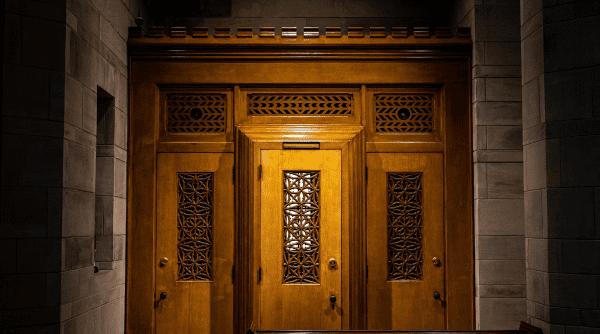“The penitent, through perfect contrition, accompanied by the desire of confession, has already obtained remission of his sins from God.” Roman Catechism, Part 2, Section 4, Penance
The idea of contrition is very unique to the Roman Catholic Tradition. The word itself literally means “the breaking of an object into small parts by means of a stone or some harder substance; and here it is used metaphorically, to signify that our hearts, hardened by pride, are beaten and broken by penance.” (Ibid., The First Part of Penance) It follows then that contrition has to do with the heart, and the heart’s relation to sin and conversion to God.
The Catechism of the Council of Trent thoroughly and timelessly defines contrition as “a sorrow and detestation for sin committed, with a purpose of sinning no more…. If joined with a confidence in the mercy of God and an earnest desire of performing whatever is necessary to the proper reception of the Sacrament, it thus prepares us for the remission of sin.” (Ibid., The First Part of Penance)
Perfect contrition is, as the name implies, the perfect movement of contrition in the soul. This is only possible with God’s help, and has the ability to pardon our sins even before we go to Confession. Although Sacramental Confession is to be encouraged and sought as our ordinary means of forgiveness, in times when the sacraments are scarce, we must pray frequently to obtain perfect contrition.
It is when we have sorrow and detestation for sin committed, “because thou art all good and deserving of all my love,” as the Act of Contrition says, that contrition is mobilized to perfection. This is distinct from imperfect contrition, which Trent describes as “attrition, since it commonly arises either from the consideration of the heinousness of sin or from the fear of hell and of punishment.” (Council of Trent, Section 14, Ch 4, Contrition)
“Contrition is evoked by examination, recollection, and
hatred of sins.” Council of Trent, Section 14, Penance Canon 5
Though God’s help is necessary to move our hearts to perfect contrition, we can do our part to prepare to receive His grace and mercy by a thorough self-examination. Trent admonished clergy to remind the lay faithful,
frequently to examine their consciences, in order to ascertain if they have been faithful in the observance of those things which God and His Church require. Should anyone be conscious of sin, he should immediately accuse himself, humbly solicit pardon from God, and implore time to confess and satisfy for his sins. Above all, let him supplicate the aid of divine grace, in order that he may not relapse into those sins which he now penitently deplores. (Ibid.)
Without examining ourselves often, we cannot know ourselves, and we cannot truly encounter our sins and see them as God wants us to see them. For some, the periodic or frequent examination of conscience might invoke fear and trepidation. Facing our faults can be daunting. But we must remember: God wants to save us.
Trent softens the blow, and further elaborates on the real possibility of attaining perfect contrition:
for since God is most desirous of our salvation, He will not delay to pardon us. With a father’s fondness, He embraces the sinner the moment he enters into himself, turns to the Lord and, having detested all his sins, resolves that later on, as far as he is able, he will call them singly to mind and confess them. The Almighty Himself, by the mouth of His Prophet, commands us to hope, when He says: The wickedness of the wicked shall not hurt him, in what day soever he shall turn from his wickedness. (Roman Catechism, Part 2, Section 4, The First Part of Penance)
+
This article on How to Evoke Contrition is adapted from the book The Magdalena Prayer Book by Gaudent Angeli which is available from Sophia Institute Press.
Art for this post on a reflection from “How to Evoke Contrition” by Gaudent Angeli: cover used with permission; Photo by Nick Castelli on Unsplash





